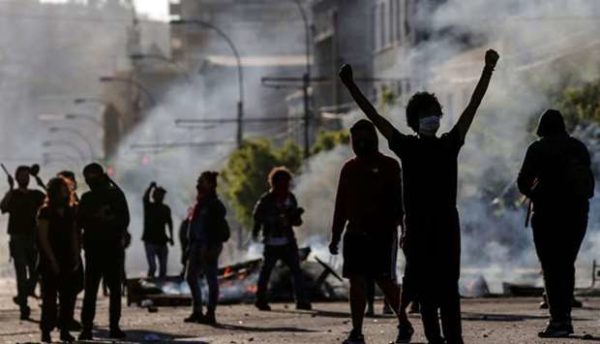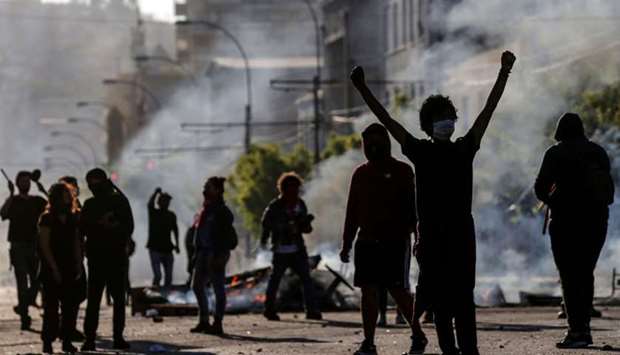Chile’s President Sebastian Piñera vowed to increase the basic pension by 20% and proposed a law that would see the state cover the costs of expensive medical treatments after days of violent protests.
The protests were sparked by a rise in subway prices but grew into something bigger as thousands took to the streets over austerity and inequality.
Fifteen deaths have been reported during protests as more than 5,000 were detained.
Speaking from the presidential palace in the capital Santiago, Sebastian Piñera said he had received a clear message from Chileans.
He said he hoped to turn recent violent protests into an “opportunity” for Chile “to make up for lost time, pick up the pace and take concrete and urgent steps”.
The president vowed to increase the minimum wage as well as introducing a new higher tax bracket. Electricity rates will also be cut under the reform plan.
People began to protest in Santiago in the wake of an increase in subway fares. High school pupils and university students called on passengers to evade fares by jumping over the turnstiles. The rise in subway prices has since been overturned.

Pablo Neruda case: Chile opens new investigation into poet’s death
Valentina Maureira: Chilean girl asks President Michelle Bachelet to be allowed to die
Protests quickly turned into mass demonstrations in several cities as Chileans sought action on rising living costs and low wages.
Chile is one of the most prosperous countries in the region but has high levels of inequality.
Ten cities have been placed in a state of emergency and under a night curfew. There have been outbreaks of looting and arson.
On October 22, many schools and shops remained closed in both Santiago and other cities, and long queues formed at petrol stations.
In Santiago, rioters damaged the city’s subway system with repairs estimated to total at least $200 million. The subway is still only partially running due to the damage.
